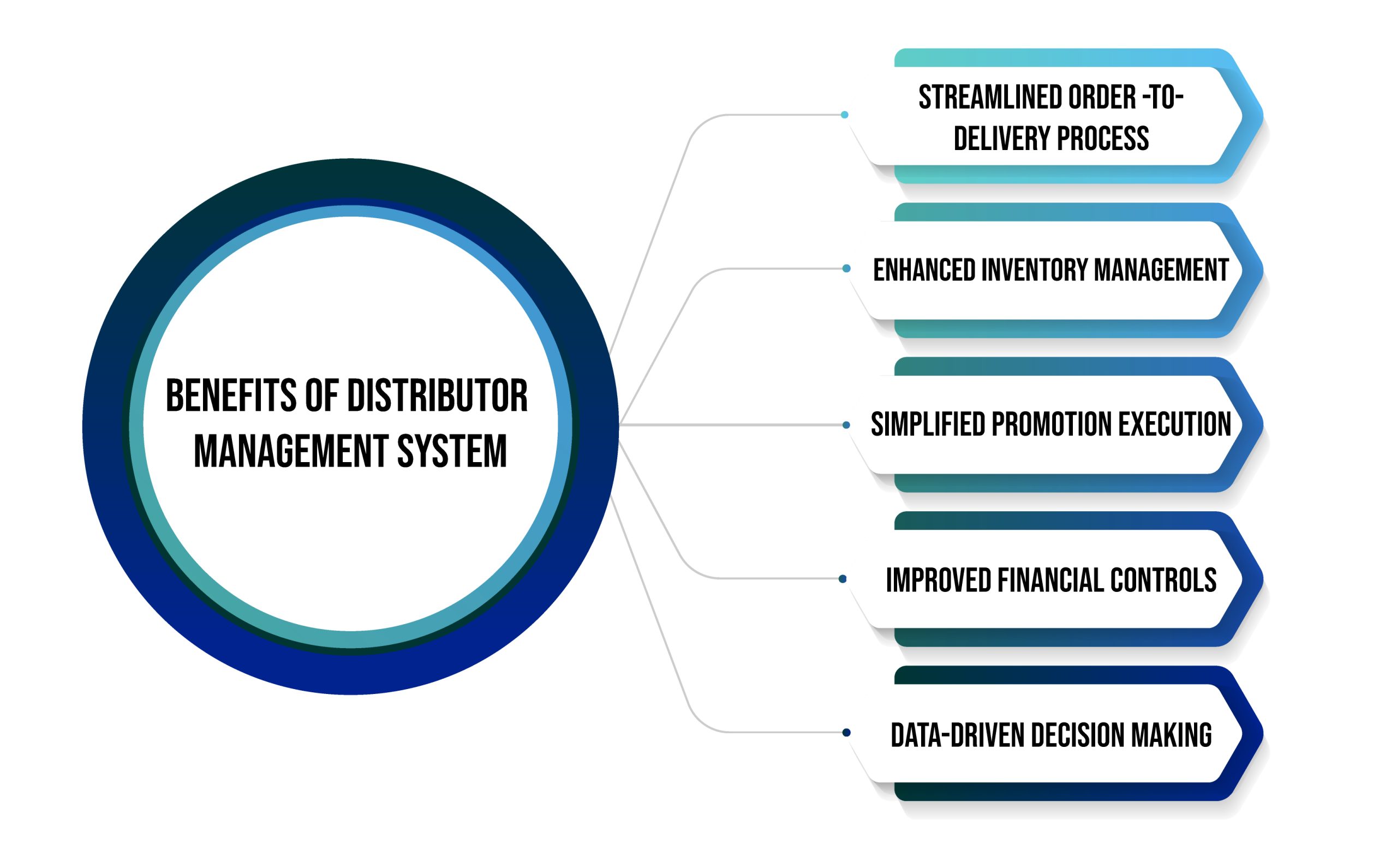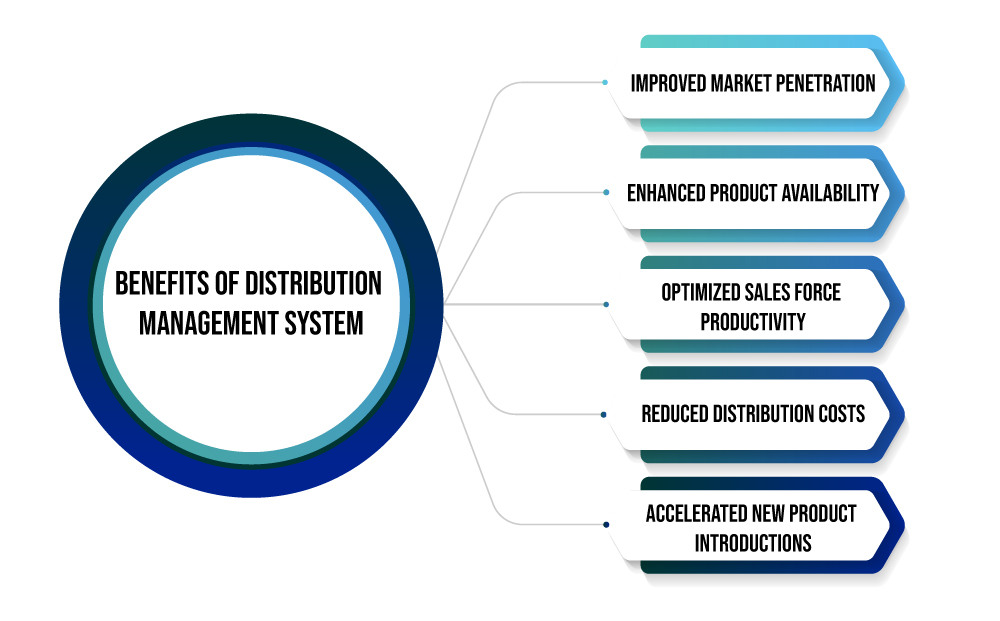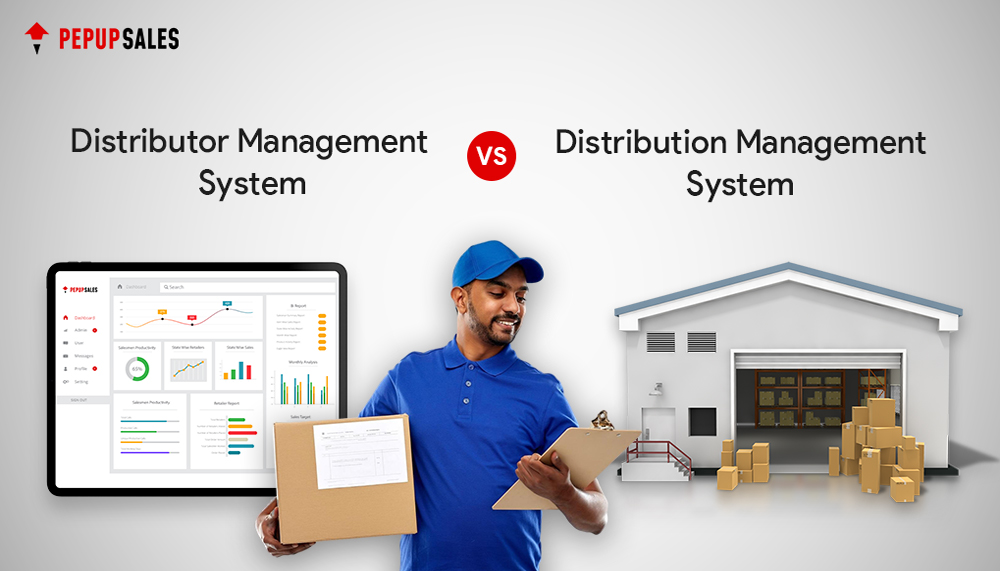The FMCG industry today faces bigger challenges than ever before. Consumer preferences change quickly, products need to reach shelves faster, and competition is intense. If your brand is still using outdated systems to manage distribution, you’re likely falling behind competitors who’ve embraced modern solutions.
Research shows that 65% of FMCG brands struggle with their distribution networks, and 42% lose significant revenue due to inefficiencies like stockouts and delayed market entry.
As a decision-maker in an FMCG company, you’re probably looking for ways to improve operations, increase profits, and grow your business. But when it comes to choosing the right technology for managing your distribution, things can get confusing.
Should you invest in a Distributor Management System or a Distribution Management System? While these names sound similar, they serve different purposes in the FMCG world.
Think of it this way: if a Distributor Management System is the engine that powers your distribution relationships, a Distribution Management System is the entire car—integrating all components of your distribution network into one cohesive system.
This guide will clear up the confusion by explaining what each system does, how they benefit FMCG brands specifically, and help you figure out which one is the best fit for your company’s needs.
What is a Distributor Management System in FMCG?
A Distributor Management System is a specialized software solution designed to optimize the relationship between FMCG brands and their distributors. In an industry where products must quickly move from production facilities to retail shelves before expiration dates, efficient distributor relationships are paramount.
For example, an FMCG company producing dairy products needs seamless coordination with its distributors to ensure products reach retailers while maintaining freshness and quality. A DMS automates critical processes like order processing, payment tracking, and sales monitoring, replacing manual methods such as spreadsheets, phone calls, or WhatsApp messages with a streamlined digital workflow.
Benefits of Implementing a Distributor Management System

A properly implemented DMS addresses these challenges, offering significant benefits for FMCG brands:
Streamlined Order-to-Delivery Process
By digitizing and automating the entire order-to-delivery workflow, it reduces processing time by up to 70%, ensuring FMCG products reach retailers faster and fresher. This is particularly crucial for categories like fresh foods and beverages where time-to-market directly impacts product quality.
Enhanced Inventory Management
Real-time inventory visibility across the distribution network enables FMCG brands to optimize stock levels, reduce waste due to expirations, and ensure product availability during demand spikes. For example, during festival seasons when certain product categories experience surge demand, a Distributor Management System enables proactive inventory planning.
Simplified Promotion Execution
It centralizes promotion management, ensuring consistent implementation across all distribution channels. FMCG brands can easily configure different promotion types—from “buy one get one” offers to volume-based discounts—and track their performance in real-time, optimizing marketing spend.
Improved Financial Controls
Automated invoicing, payment tracking, and claim management streamline financial operations, reducing payment cycles by up to 40% and improving cash flow throughout the distribution network. This is especially valuable in markets where distributors operate on thin margins and need consistent cash flow.
Data-Driven Decision Making
With consolidated data on sales, inventory, and distributor performance, FMCG brands can make informed decisions about product allocation, territory expansion, and distributor development, ultimately increasing market penetration and sales growth.
What is a Distribution Management System in FMCG?

While a Distributor Management System focuses specifically on managing distributor relationships, a Distribution Management System takes a broader approach, encompassing the entire distribution ecosystem from production facilities to retail shelves. In the FMCG context, a Distribution Management System connects all distribution stakeholders—manufacturers, distributors, sales teams, and retailers—providing end-to-end visibility and control over the complete distribution chain.
Think of the difference this way: if a Distributor Management System is primarily concerned with optimizing how your brand works with distributors (the “middle” of your supply chain), it manages the entire journey of your products from factory to consumer, including sales force activities, retailer relationships, and multi-channel strategies.
Benefits of Implementing a Distribution Management System
A comprehensive Distribution Management System addresses these challenges, offering transformative benefits for FMCG brands:
Improved Market Penetration
By optimizing the entire distribution network, FMCG brands can increase their numeric distribution (percentage of stores carrying their products) by 15-25%, especially in previously underserved areas, directly impacting top-line growth.
Enhanced Product Availability
Real-time tracking of inventory levels across the distribution chain reduces stockout incidents by up to 35%, ensuring consumers can find products when and where they want them. This is particularly critical for impulse purchase categories where availability directly correlates with sales.
Optimized Sales Force Productivity
AI-powered route planning and visit scheduling increase the number of productive store visits by 20-30%, allowing sales teams to cover more outlets and spend more time on value-adding activities like merchandising and relationship building rather than travel.
Reduced Distribution Costs
Streamlined logistics, optimized inventory placement, and efficient route planning can reduce overall distribution costs by 8-12%, a significant saving in the low-margin FMCG sector where distribution expenses often represent 5-15% of revenue.
Accelerated New Product Introductions
It enables FMCG brands to execute new product launches more efficiently, reducing time-to-market by 20-40% and ensuring widespread availability during critical launch periods when advertising support is highest.
Distributor Management System vs Distribution Management System: Which One Does Your FMCG Brand Need?
To help you make the right choice for your FMCG brand, here’s a comparison of key attributes of both systems:
| Aspect | Distributor Management System | Distribution Management System |
| Primary Focus | Order processing, sales tracking, invoicing, credit management | End-to-end supply chain, multi-channel management, field force automation |
| Best For | FMCG brands focusing on improving distributor operations and relationships | FMCG brands seeking holistic optimization of their entire route-to-market strategy |
| Complexity | Moderate – focuses on specific processes | Higher – encompasses broader distribution operations |
| Implementation Time | 1-2 months typically | 2-3 months typically |
| Cost Range | Lower initial investment | Higher initial investment with greater long-term returns |
| Key FMCG Benefit | Improved distributor performance and primary sales | Enhanced market coverage, availability, and sales across channels |
Making the Right Choice for Your FMCG Brand
To determine which system aligns best with your FMCG brand’s needs, consider these guiding questions:
What’s Your Primary Distribution Challenge?
If your main challenges revolve around distributor management—order processing, payments, or primary sales tracking—a Distributor Management System might be sufficient. If you’re struggling with broader issues like market penetration, field force productivity, or multi-channel coordination, a Distribution Management System would be more appropriate.
What’s Your Distribution Network Complexity?
For FMCG brands with relatively straightforward distribution networks (few distributors, limited geographical coverage), a Distributor Management System may meet your needs. Brands with complex networks spanning multiple regions, numerous distributors, and various sales channels will benefit more from a comprehensive Distribution Management System.
What’s Your Growth Strategy?
If your near-term focus is on optimizing existing distributor relationships and improving operational efficiency, a Distributor Management System is a good starting point. If you’re planning aggressive market expansion, new channel development, or significant product portfolio growth, the broader capabilities of a Distribution Management System will better support your strategy.
What’s Your Technology Readiness?
Consider your organization’s technology infrastructure and team capabilities. A Distributor Management System typically requires less extensive integration and can serve as a stepping stone toward more comprehensive digital transformation, while a Distribution Management System implementation may be more complex but delivers more transformative benefits.
What’s Your Investment Horizon?
A Distributor Management System generally requires lower initial investment and can deliver quick wins in specific areas, making it suitable for brands with limited technology budgets. A Distribution Management System requires greater upfront investment but offers higher long-term returns through comprehensive optimization of the entire distribution network.

Conclusion:
The right distribution technology can be the difference between stagnation and success for your FMCG brand. Whether you choose a Distributor Management System to optimize relationships with your distribution partners or a Distribution Management System to transform your entire route-to-market approach, the key is moving beyond traditional, manual processes toward data-driven distribution management.
At PepUpSales, we understand the unique distribution challenges facing FMCG brands and offer tailored solutions to address your specific needs. Our platform combines the core capabilities of both Distributor Management and Distribution Management Systems, with specialized features designed specifically for the FMCG sector.Ready to transform your distribution strategy? Contact PepUpSales today for a personalized consultation and discover how our solutions can help your FMCG brand achieve greater market penetration, operational efficiency, and sustainable growth.


